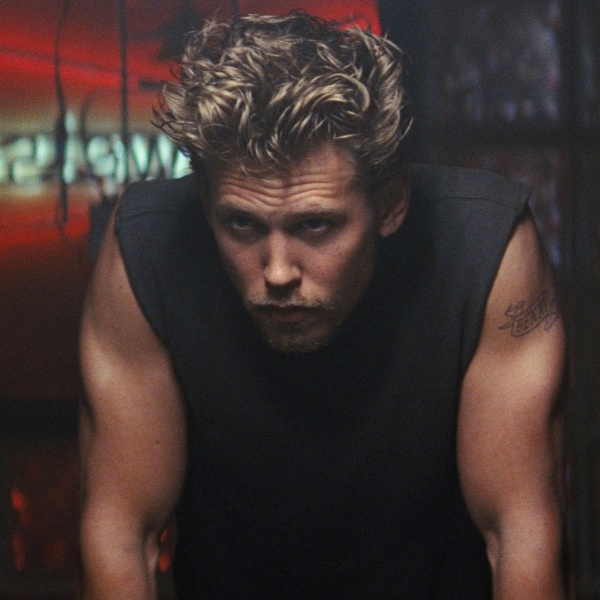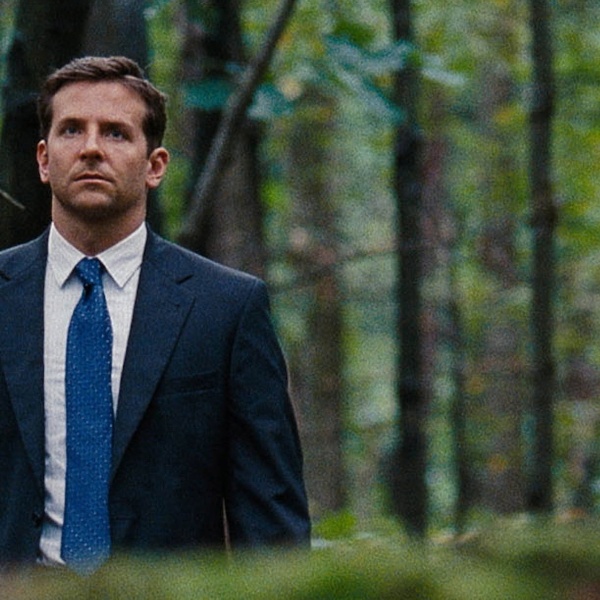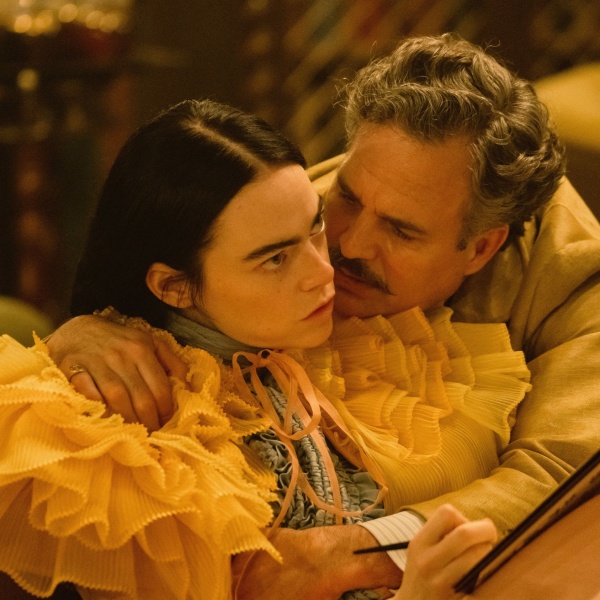
Sincerely rendered, modest and at times, a little too simplistic, Chris Weitz‘s “A Better Life,” is neverthless a labor of love and a quiet, well-intentioned examination of family, father-son relationships and immigration issues in the U.S. Chalk it up to guilt. No, not white guilt, franchise guilt. After delivering two back-to-back rather bankrupt genre tentpoles (the polar bear coke commercial, anti-religion campaign “The Golden Compass” and the vacuous “Twilight: New Moon“) director Weitz pulls a full 180 with his small-scale humanist drama, and he’s a better man (and filmmaker) for it. If only every empty and tentpole obsessed director felt as though they needed to make similar amends. Not that atonement washes away all sins nor creates a perfect movie, but at the very least, even if it misfires ocassionally, which is does, the intent is pure — and that’s a start.
Centering on a poor Hispanic father and his son in Latin-dominant L.A., Demian Bechir shines as the hardworking patriarch Carlos Galindo, a single father, illegal alien and migrant worker trying to make ends meet and keep his teenage son Luis in school (José Julián) A gardener by trade, he spends, hot, grueling long days trying to find work only to come home to a couch for a bed and a typically angsty teen torn by peer pressures at school. When his “boss” announces he is moving back to Mexico, Carlos’ welfare and basic existence becomes threatened. He can buy his employer’s truck — as the manipulative man suggests over and over again, trying to convince him to be his own boss by taking over his clients when he leaves the U.S. — or move forward without it, hitting the streets once more with the other migrant workers scrambling each day to cobble together some kind of pay.

Meanwhile, his son, largely an angry, but sweet latch-key kid left to his own devices, is feeling the pressures of gang life, an option that for some feels like the obvious choice when facing limited alternatives. When Carlos caves and decides he must buy the truck, he must swallow his pride and ask his sister — legal because she married an American — for money. A warm, summery hope finally arrives when Carlos purchases the vehicle — the idea being this business can eventually buy them a better home leading to a better school district and afford them, yes, you guessed it, a better life.
But this augur of hope is brief and things take a turn for the worse when Carlos’ truck, everything he has invested in, is stolen from a fellow impoverished Latino co-worker. From there he must retrieve his truck at all costs with or without the help of his angry son which leads to a circuitous path of conflict and drama which takes us throughout the rest of the picture. Thoughtful and yet at times naively facile, the picture does earn points for its subdued and measured approach — a method that simultaneously also isn’t always so subtle. The stakes at hand are modest and yet they mean everything to this family of two who perhaps unsurprisingly are forced to bond in their time of crisis.
And yet, for a film that can be as thematically black and white and unsophisticated as this one — watch the white cop to tell the son to take off his shirt so he can photograph his gang tattoos; wait egg on your face, he has none! — “A Better Life” is still surprisingly emotionally resonant thanks to its two leads (more on that in a second). 
Fundamentally, there are disconcerting issues. As a poor, single, hard-working father left to raise his difficult, ungrateful son on his own, the deck is unfairly stacked in his favor; it’s impossible not to deeply empathize with the character. In this sense, the story is inherently manipulative, but while some of the devastating losses that happen to Carlos seem grossly unjust (again, how much are you willing to evoke the pity and sympathy of your audience?), the picture generally never veers too far into immigrant tragedy porn or minority poverty exploitation (though a few moments may test this statement occasionally, and this point to a degree, is subjective).
Still this is the central challenge for discerning audiences: negotiating your genuine empathy for this father trying to do his best — which is often heartbreaking to watch — and yet feeling mild discomfort and resent over the stories manipulative handicap of its protagonist — “feel sorry for this character” it often subtly, not-so-subtly intones.
The dialogue too can be frustratingly on those nose. One of the more emotionally honest and impactful elements of the film is the daily quiet fear and insecurity Carlos has to live with every day as an illegal immigrant; one false move and everything he has worked for and the dream of a better life for his son is gone. This is a very real and disconcerting frame of mind to live in so its wholly unnecessary when Carlos monologues aloud that he will just “keep his head down and try and stay invisible.” While that’s a depressing and incredibly sad statement, someone of Bechir’s quality can and does convey such sentiments with the most subtle of expressions. Known for his work on “Weeds” and playing Fidel Castro in “Che,” Bechir is already a superstar in Mexico and its easy to ascertain why. He’s an exceptional, unflashy actor carrying the weight and years of his character’s struggle on his face. With a lesser thesp, the narrative shortcomings of the picture could feel like an after school special set in East L.A., but Bechir elevates everyone’s game and makes every scene as poignant as it can be.
Also assisting with the genuine pathos is notable composer Alexandre Desplat. While some musical moments do feel slightly treacly and overly heart-swelling (its not exactly his finest work), its only by a few degrees occasionally and the warm, Spanish-inflected score often does act an emotional crutch when the scenes are quite where they need to be.
The heart of the matter may be a mainstream filmmaker trying to embody the contours of an independent film. Weitz may have to try two of these films in a row if he wants to fully grasp and follow-through on this kind of tenor and mood. While his instincts are generally well-disposed, the director definitely has trouble with transitions, music (especially with pop music that centers in L.A. gang scenes — cliche alerts!) and his tendency to intermittently tug at your heartstrings. Though truthfully, it genuinely feel as if he’s not trying to tweak audiences and the few off-notes feel just like a error in slight judgement; dialing back a few notches here and there would have done the film wonders.
And yet, his restraint is admirable: a heartbreaking conclusion that asks for no quarter could have been painfully botched in the wrong hands. Instead he leaves it bare and simple: two actors convincingly playing father and son in a scene that’s as heartbreaking and unfortunate as anything you might see onscreen this year. Of Mexican lineage and married to a Hispanic woman, “A Better Life” is clearly a personal project for Weitz as a simple, small-stakes drama with all unknown Hispanic actors isn’t exactly made for profit. In fact “A Better Life” feels like an endangered species and next to the litany of franchises, sequels, tentpoles and half-baked genre films, its a miracle that films like this even get made anymore. Problems aside, while uneven conscientiously, Weitz’s heart is in the right place and in the film’s clutch moments, this sentiment shines through brightly making “A Better Life” a worthwhile film regardless of its foibles.
[B or B-, depending on how you feel about the films contrivances]






